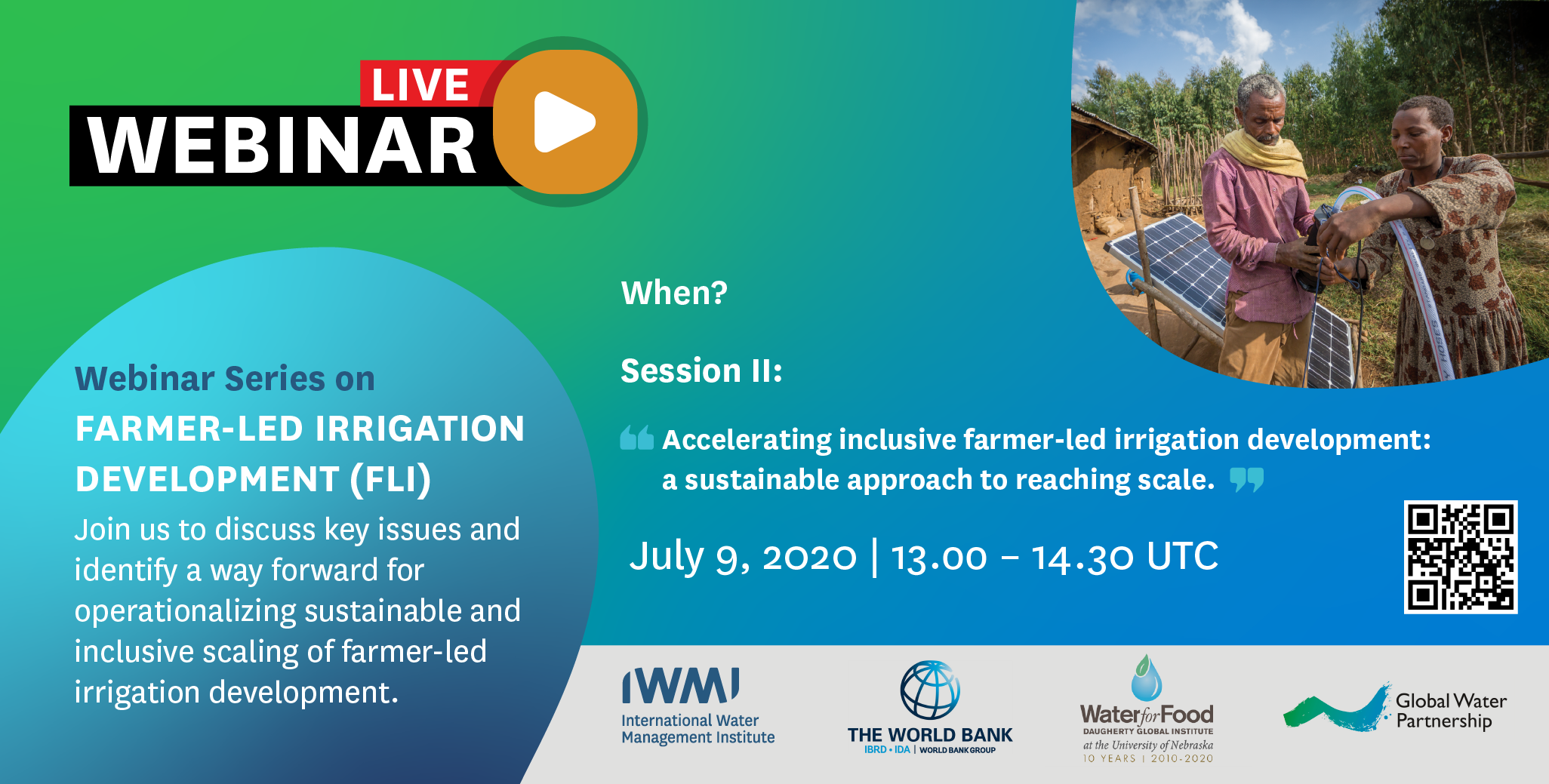The second session aims to:
- Discuss the various aspects of sustainability and potential trade-offs for FLI development
- Discuss innovative approaches to ensure water access remains equitable to all water users as FLI development is acceleratedIntroduce innovations for sustainable use of water resources during FLI scale-up;
The webinar participants will delve into these important issues in a 1.5 hour discussion with global experts in sustainable smallholder farming. Participants will be asked to provide examples of the types of farmer incentives, government regulation and monitoring, private sector initiatives or other approaches they have piloted or tested/ to support and stimulate water stewardship. Moreover, the discussion will explore the need for technical advisory and knowledge cooperation in accelerating sustainable and inclusive FLI development.
SPEAKERS:
- Armand Houanye, Global Water Partnership West Africa (GWP West Africa)
- Petra Schmitter, International Water Management Institute (IWMI)
- Shilp Verma, International Water Management Institute (IWMI-TATA)
- Dave D'Haeze, Hanns R. Neumann Foundation
- Ruth Meinzen-Dick, International Food Policy Research Institute (IFPRI)
- Kerstin Danert, Ask for Water / Barbara Van Koppen RWSN
- Sarah Keener, The World Bank
REMARKS:
- Peter G. McCornick, Daugherty Water for Food Global Institute (DWFI)
- Peter Repinski, Global Water Partnership (GWP)
- Regassa Namara, The World Bank
- Joy Busolo, The World Bank
Register for the 9 July webinar through this link.
Recording on the first FLI webinar, held on 11 June
Read summary blog from the first FLI webinar
Experts unite to find the best ways to scale up farmer-led irrigation

